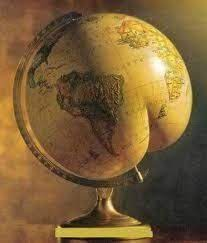Some loosely organized thoughts on the current Zeitgeist.
-
Some loosely organized thoughts on the current Zeitgeist. They were inspired by the response to my recent meta-project mentioned in my previous post https://mathstodon.xyz/@tao/115254145226514817, where within 24 hours I became aware of a large number of ongoing small-scale collaborative math projects with their own modest but active community (now listed at https://mathoverflow.net/questions/500720/list-of-crowdsourced-math-projects-actively-seeking-participants ); but they are from the perspective of a human rather than a mathematician.
As a crude first approximation, one can think of human society as the interaction between entities at four different scales:
1. Individual humans
2. Small organized groups of humans (e.g., close or extended family; friends; local social or religious organizations; informal sports clubs; small businesses and non-profits; ad hoc collaborations on small projects; small online communities)
3. Large organized groups of humans (e.g., large companies; governments; global institutions; professional sports clubs; large political parties or movements; large social media sites)
4. Large complex systems (e.g., the global economy; the environment; the geopolitical climate; popular culture and "viral" topics; the collective state of science and technology).
(1/5)
-
Some loosely organized thoughts on the current Zeitgeist. They were inspired by the response to my recent meta-project mentioned in my previous post https://mathstodon.xyz/@tao/115254145226514817, where within 24 hours I became aware of a large number of ongoing small-scale collaborative math projects with their own modest but active community (now listed at https://mathoverflow.net/questions/500720/list-of-crowdsourced-math-projects-actively-seeking-participants ); but they are from the perspective of a human rather than a mathematician.
As a crude first approximation, one can think of human society as the interaction between entities at four different scales:
1. Individual humans
2. Small organized groups of humans (e.g., close or extended family; friends; local social or religious organizations; informal sports clubs; small businesses and non-profits; ad hoc collaborations on small projects; small online communities)
3. Large organized groups of humans (e.g., large companies; governments; global institutions; professional sports clubs; large political parties or movements; large social media sites)
4. Large complex systems (e.g., the global economy; the environment; the geopolitical climate; popular culture and "viral" topics; the collective state of science and technology).
(1/5)
An individual human without any of the support provided by larger organized groups is only able to exist at quite primitive levels, as any number of pieces of post-apocalyptic fiction can portray. Both small and large organized groups offer significant economies of scale and division of labor that provide most of the material conveniences that we take for granted in the modern world: abundant food, access to power, clean water, internet; cheap, safe and affordable long distance travel; and so forth. It is also only through such groups that one can meaningfully interact with (and even influence) the largest scale systems that humans are part of.
But the benefits and dynamics of small and large groups are quite different. Small organized groups offer some economy of scale, but - being essentially below Dunbar's number https://en.wikipedia.org/wiki/Dunbar%27s_number in size - also fill social and emotional needs, and the average participant in such groups can feel connected to such groups and able to have real influence on their direction. Their dynamics can range anywhere from extremely healthy to extremely dysfunctional and toxic, or anything in between; but in the latter cases there is real possibility of individuals able to effect change in the organization (or at least to escape it and leave it to fail on its own).
(2/5)
-
An individual human without any of the support provided by larger organized groups is only able to exist at quite primitive levels, as any number of pieces of post-apocalyptic fiction can portray. Both small and large organized groups offer significant economies of scale and division of labor that provide most of the material conveniences that we take for granted in the modern world: abundant food, access to power, clean water, internet; cheap, safe and affordable long distance travel; and so forth. It is also only through such groups that one can meaningfully interact with (and even influence) the largest scale systems that humans are part of.
But the benefits and dynamics of small and large groups are quite different. Small organized groups offer some economy of scale, but - being essentially below Dunbar's number https://en.wikipedia.org/wiki/Dunbar%27s_number in size - also fill social and emotional needs, and the average participant in such groups can feel connected to such groups and able to have real influence on their direction. Their dynamics can range anywhere from extremely healthy to extremely dysfunctional and toxic, or anything in between; but in the latter cases there is real possibility of individuals able to effect change in the organization (or at least to escape it and leave it to fail on its own).
(2/5)
Large organized groups can offer substantially more economies of scale, and so can outcompete small organizations based on the economic goods they offer. They also have more significant impact on global systems than either average individuals or small organizations. But the social and emotional services they provide are significantly less satisfying and authentic. And unless an individual is extremely wealthy, well-connected, or popular, they are unlikely to have any influence on the direction of such a large organization, except possibly through small organizations acting as intermediaries. In particular, when a large organization becomes dysfunctional, it can be an extremely frustrating task to try to correct its course (and if it is extremely large, other options such as escaping it or leaving it to fail are also highly problematic).
(3/5)
-
Large organized groups can offer substantially more economies of scale, and so can outcompete small organizations based on the economic goods they offer. They also have more significant impact on global systems than either average individuals or small organizations. But the social and emotional services they provide are significantly less satisfying and authentic. And unless an individual is extremely wealthy, well-connected, or popular, they are unlikely to have any influence on the direction of such a large organization, except possibly through small organizations acting as intermediaries. In particular, when a large organization becomes dysfunctional, it can be an extremely frustrating task to try to correct its course (and if it is extremely large, other options such as escaping it or leaving it to fail are also highly problematic).
(3/5)
My tentative theory is that the systems, incentives, and technologies in modern world have managed to slightly empower the individual, and massively empower large organizations, but at the significant expense of small organizations, whose role in the human societal ecosystem has thus shrunk significantly, with many small organizations either weakening in influence or transitioning to (or absorbed by) large organizations. While this imbalanced system does provide significant material comforts (albeit distributed rather unequally) and some limited feeling of agency, it has led at the level of the individual to feelings of disconnection, alienation, loneliness, and cynicism or pessimism about the ability to influence future events or meet major challenges, except perhaps through the often ruthless competition to become wealthy or influential enough to gain, as an individual, a status comparable to a small or even large organization. And larger organizations have begun to imperfectly step in the void formed by the absence of small communities, providing synthetic social or emotional goods that are, roughly speaking, to more authentic such products as highly processed "junk" food is to more nutritious fare, due to the inherently impersonal nature of such organizations (particularly in the modern era of advanced algorithms and AI, which when left to their own devices tend to exacerbate the trends listed above).
(4/5)
-
 undefined Oblomov shared this topic on
undefined Oblomov shared this topic on



